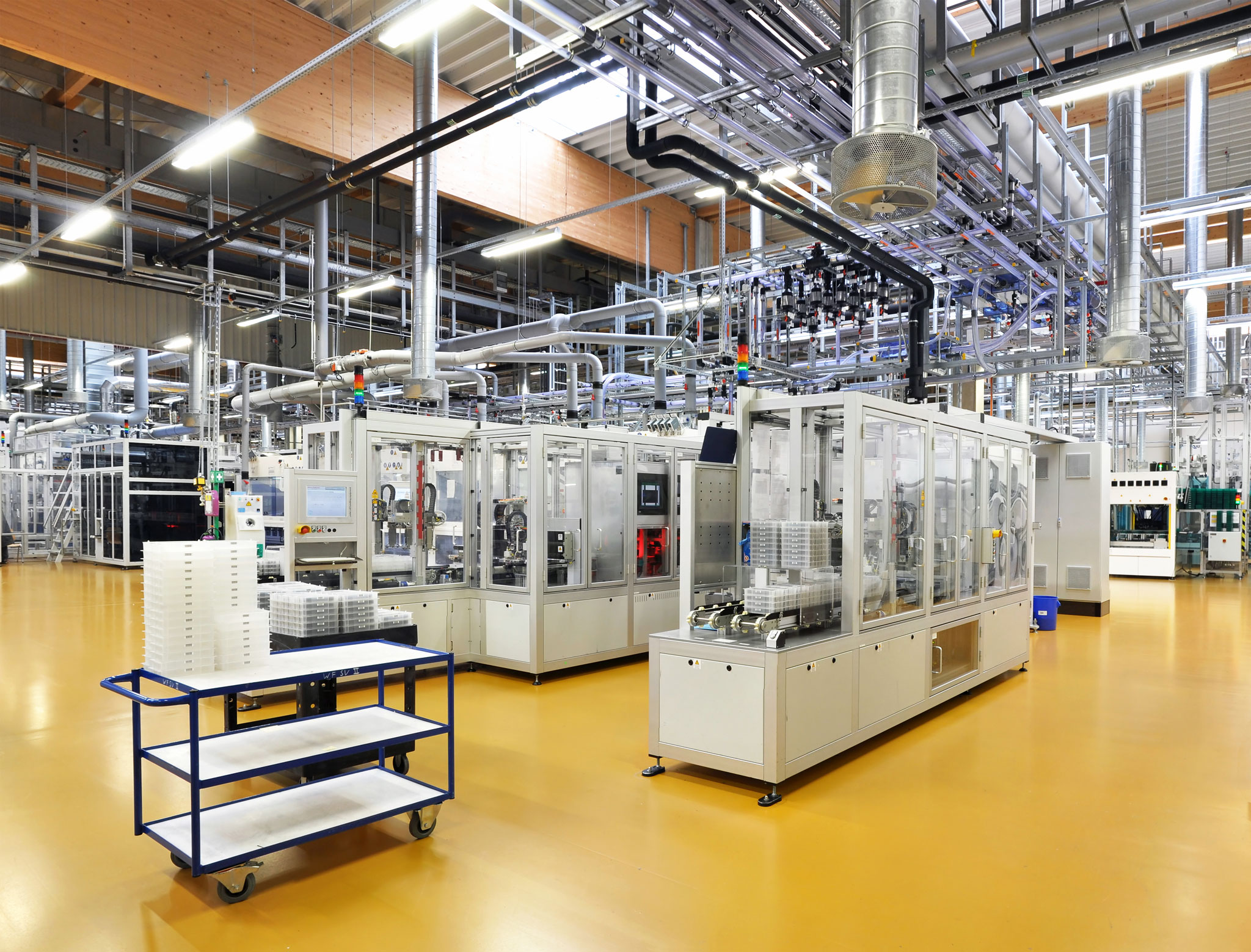Data integration creates added value
The goal is to represent processes so transparently that automatic recording and analysis of process models is possible through the use of cyber-physical systems (CPS) or Internet of Things (IoT) systems and artificial intelligence. Process steps are described and events are derived in real time. This is done using existing data from automated production and new data sources, as well as combining identified and digitally collected metrics. Event information is, for example, the status of parts, assemblies or products. Using middleware, the events are described semantically, put into context, persisted in a data platform and finally analyzed by means of AI in an evaluation software, so that finally measures for controlling the process can be derived.
On the basis of such structured and interlinked stored data from the production and testing machines, systems are being developed that predictively recognize, for example, quality incidents, changing process parameters or maintenance requirements of machines. For this purpose, methods from statistics such as correlation analyses as well as artificial intelligence approaches are applied.
This makes it possible to inform employees at an early stage of the configuration requirements of Internet of Things-capable devices or interventions in the processes so that the examined processes run optimally.
Use in practice
At the application partner Siemens, the following use cases are analyzed and implemented at the Amberg and Cham sites:
- Reduction of the maintenance effort of production plants (predictive maintenance).
- Avoidance of rework during the adjustment of circuit breakers
- Acceleration of plant ramp-ups
To this end, Fraunhofer IIS investigated and researched connecting points to existing data. Weaknesses discovered in the existing plants were safeguarded by additional by additional IoT components, improving the data basis in such a way that the use of AI can provide significant added value for the use cases. As a result, for example, a vibration data profile is recorded with low hardware costs for sensors, from which the actual condition of production modules can be derived. The time-accurate condition information will then be linked to information from other data sources such as production control or maintenance data. Based on this data integration, correlations are explored that will later be used to optimize the plant.
